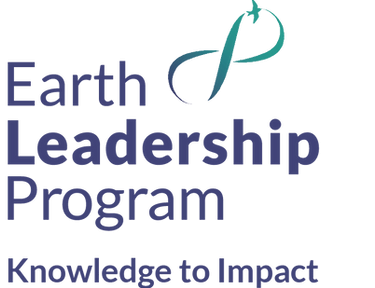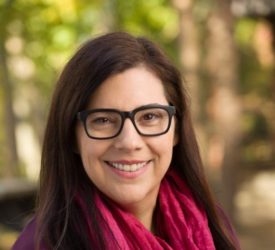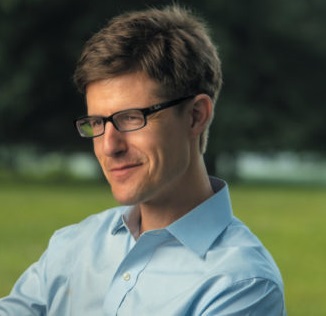
Pamela McElwee, professor, Department of Human Ecology, and Malin Pinsky, associate professor, Department of Ecology, Evolution, and Natural Resources, who were named Fellows of the Earth Leadership Program (ELP), will join their colleagues in the North American Cohort in an ELP training session in Racine, Wisconsin, from June 12-18.
Elected in 2021, McElwee and Pinsky are among 22 academics working within a wide array of disciplines related to sustainability, from marine biology to atmospheric chemistry, governance and economics, set to receive training as the 2022-23 North American Cohort of the Earth Leadership Program.
The training provides outstanding academic researchers with the skills, approaches, and theoretical frameworks for catalyzing change to address the world’s most pressing sustainability challenges, emphasizing new forms of individual and collective leadership. The program enables scientists to work collaboratively with diverse stakeholders and become agents of change within and beyond their universities.
Learn more about the 2022 North American Cohort and why they do the research that they do and what they are hoping to gain from the program. Read below for more on Rutgers faculty McElwee and Pinsky.

Pamela McElwee.
Pamela McElwee, Human Ecology
What environmental or sustainability challenge is top-of-mind for you and why?
My work primarily aims to understand how global environmental changes—whether biodiversity loss or climate change or unsustainable development—affect community and individual vulnerability and how policies can help or hinder longer-term resilience. While most of my research takes place in Southeast Asia, and I have a long-term commitment to Vietnam in particular, these questions are front and center for many parts of the world, including here in the US. Additionally, I try to ensure my research and teaching highlights the interconnected nature of global challenges, for example, by having students discover how the food they eat is affected by global temperature increases or is a driver of deforestation in areas thousands of miles away from their consumption choices.
What was a key moment or an inflection point in your career where you made the decision to focus on the work you are now doing?
I was involved in both science and politics early on, and I double majored in environmental studies and political science. These two passions were recognized when I was the first undergraduate in the US to win both a Goldwater Scholarship for science aptitude and the Truman Scholarship for public service. But I really confirmed this was a sweet spot for me when I worked as an intern my junior year of college in the Senate for Al Gore and later in the Clinton White House environmental office, where for example I got to run the interagency group that came up with the first Executive Order on environmental justice. I had a wonderful time there, but realized that I wanted to be the person who did the science that informed policy rather than vice versa, and so I went back to grad school for my PhD. But I’ve always valued those years of seeing politics made up-close, and the experience has influenced how I approach work I currently do with science-policy platforms like the IPCC.
Without worrying about what is realistic or time-bound, what skill or knowledge do you most hope to acquire from your fellowship year?
I would like to master leading large-scale collaborative research projects that are truly integrative, and which can catalyze innovative solutions. Recent studies have shown that social science research on environmental challenges tends to be less oriented to practitioners. Thus, learning skills in collaboration and design of transdisciplinary use-inspired projects would be extremely helpful to center social science questions to inform sustainability transitions.

Malin Pinsky.
Malin Pinsky, Ecology, Evolution and Natural Resources
What environmental or sustainability challenge is top-of-mind for you and why?
The ocean is being rapidly transformed by climate change, disrupting both the species that live in it and the human communities that rely on them. My research focused on understanding what changes are ahead for ocean life, how we effectively conserve ocean species facing climate change, and how we can continue to use ocean resources sustainably.
What was a key moment or an inflection point in your career where you made the decision to focus on the work you are now doing?
For me, the inflection point came as two events spaced a few months apart. The first was standing on the bridge of a research vessel as it crossed the Drake Passage south of South America. Fin whales suddenly surrounded the ship, marking an invisible line where ocean currents bring food to the surface at the Antarctic Convergence. It was a reminder that the ocean might look featureless, but that flat surface hides incredibly rich life. The second was, ironically, standing next to a photocopier in Washington, DC a few months later. I was copying an at-the-time recent report arguing that ocean policy in the US was largely based on the outdated idea that the ocean was only to be exploited, not conserved. I realized there was a real need for new science to inform the next generation of ocean policy.
Without worrying about what is realistic or time-bound, what skill or knowledge do you most hope to acquire from your fellowship year?
I want to learn how to build and lead larger teams of people to address environmental issues at the science-policy interface. There is so much to do to change the world, far beyond what one person can do alone. I’d love to learn different models for team-building and -leading from people who have done it well, from fund-raising to setting strategy to people- and time-management. Shadowing someone or a few people sounds attractive.

